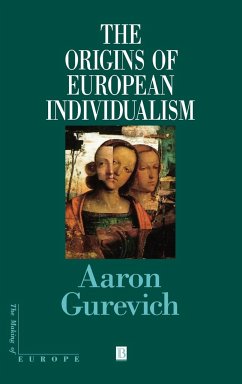The development of modern Europe, through such events as the Reformation and Counter-Reformation, the Enlightenment, the French Revolution, and the rise of industrial capitalism, is often seen in terms of the triumph of individualism. Yet the precise stages in the evolution of the European individual remain one of the most elusive aspects of the region's history. In this broad and thought-provoking investigation, Aaron Gurevich, one of Russia's leading historians, examines the growth of individual consciousness through European history, and assesses its impact on key social and political events. Traditional interpretations locate the rise of the self-aware, autonomous European citizen in the Italian Renaissance of the late fourteenth and fifteenth centuries. However, as Aaron Gurevich argues, the origins of the movements can, in fact, be traced to the early Middle Ages. Drawing from a wide range of cultural sources, from Scandinavian sagas to the poetry of Dante and Petrarch, and from sermons and religious painting to the autobiographical works of writers such as Pierre Abelard and Bernard of Clairvaux, the author charts the transition from earlier forms of community life, characterized by local, kinship groups and collective identity, towards a changed, universal society dominated by the cognitive, motivational individual. Throughout the book intellectual and cultural trends are linked to economic realities, where social mobility, labor markets and developing economies are explained and understood in their broadest context. This is a bold and thought-provoking volume which will be welcomed by all those interested in Europe's intellectual and cultural inheritance.








